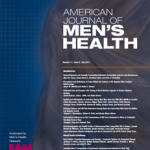As part of a Student Environmental Research Team (SERT) project, a co-created paper between Bournemouth University students and staff has just been published in the journal Marine Ecology. The first author, Hunter Hines, is a current BU Ph.D. student who, along with Sarah Young, were on the BU Biodiversity Conservation M.Sc. course during the research for this publication. Then BU undergrads Karen Saunders and Hannah Morriss are also coauthors (Hannah is currently studying for an MRes at BU).

The paper presents a method that can be used to monitor the biological effects of climate change on rocky shores. This study examined changes in limpet shell morphology across the Iberian Peninsula. Their findings show that climate change will lead to poorer adaptation to local conditions, which can be detected prior to changes in species distribution.
Prof. Rick Stafford, who led the project and is the corresponding author on the study said: “This study shows the real benefits of co-creation between staff and students. The paper is an important piece of research in terms of marine ecological communities, indicating the problems that can occur with climate change. It’s also an important introduction to research for students. They are involved in planning studies, collecting and analysing data, and writing the final paper. It’s great to see that two of the paper’s student authors are continuing in research now.”
Dr Anita Diaz who founded SERTs said: “This neatly demonstrates the scientific and pedagogic benefits of co-creation within a special ethos of shared leadership and responsibility between a team of students and staff.” You can find out more about SERTs at http://www.cocreate4science.org/serts/
The full article can be read here: http://onlinelibrary.wiley.com/doi/10.1111/maec.12472/abstract
 New paper published on spirituality and midwifery
New paper published on spirituality and midwifery “New” FHSS paper on obesity published July 2017
“New” FHSS paper on obesity published July 2017










 Connecting Research with Practice: FoodMAPP Secondment in Austria and France
Connecting Research with Practice: FoodMAPP Secondment in Austria and France Health promotion paper read 8,000 times
Health promotion paper read 8,000 times The Beautiful Work Challenge: On Birth
The Beautiful Work Challenge: On Birth Free event on Solutions to Inequalities in Dementia Diagnosis and Care
Free event on Solutions to Inequalities in Dementia Diagnosis and Care MSCA Postdoctoral Fellowships 2025 Call
MSCA Postdoctoral Fellowships 2025 Call ERC Advanced Grant 2025 Webinar
ERC Advanced Grant 2025 Webinar Horizon Europe Work Programme 2025 Published
Horizon Europe Work Programme 2025 Published Horizon Europe 2025 Work Programme pre-Published
Horizon Europe 2025 Work Programme pre-Published Update on UKRO services
Update on UKRO services European research project exploring use of ‘virtual twins’ to better manage metabolic associated fatty liver disease
European research project exploring use of ‘virtual twins’ to better manage metabolic associated fatty liver disease